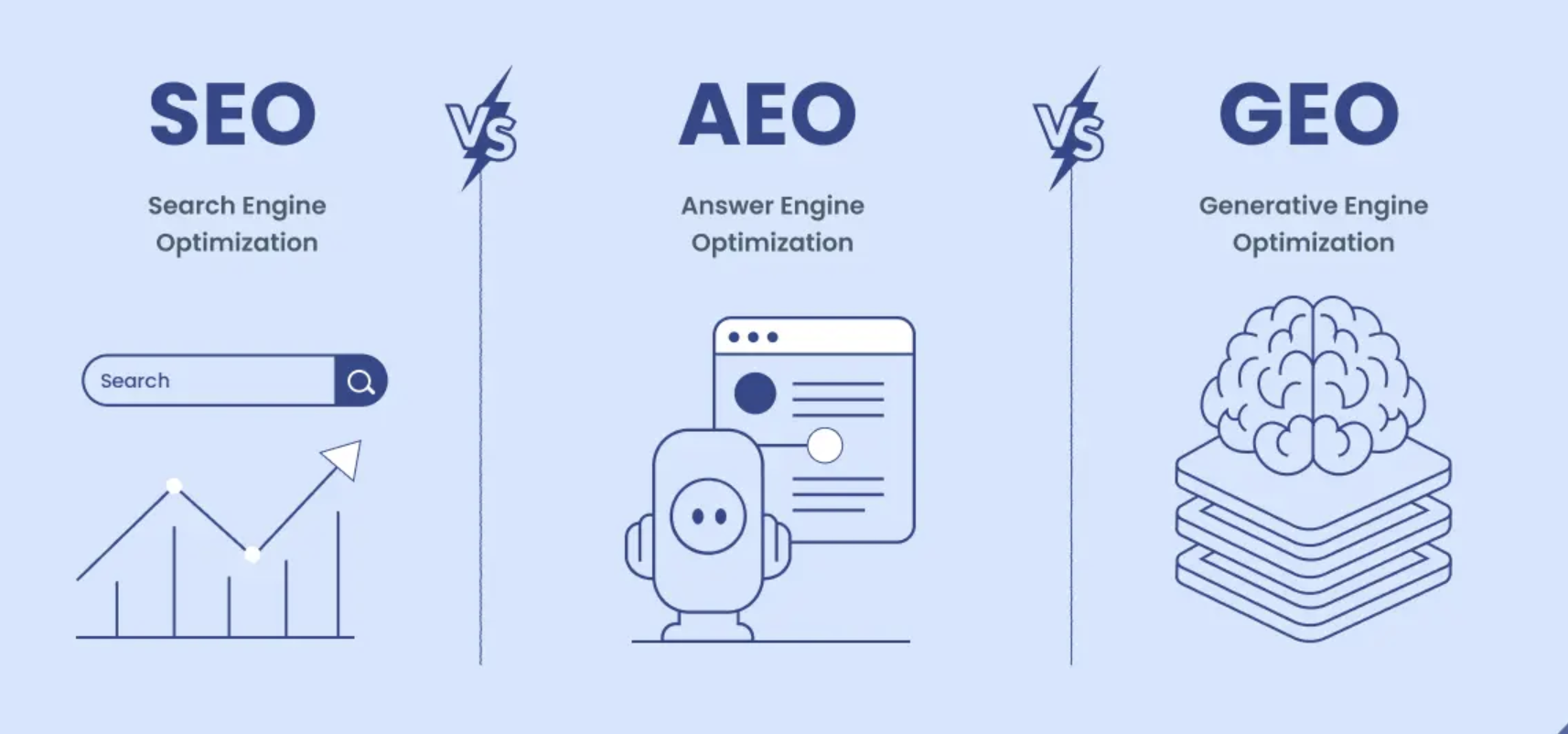Generative Engine Optimization (GEO) is reshaping search faster than ever. Google is no longer the only gatekeeper to online visibility. Today, users ask ChatGPT, Gemini, Perplexity, Grok, Claude, or Copilot for answers.
AI doesn’t just show a list of links. It gives one single answer. If your brand isn’t included, it’s invisible.
This is where AI content optimization and answer-focused strategies come in. They are the next step after traditional SEO, and they explain why early adopters will secure visibility for years.
Understanding AI answer optimization
Definition: AI answer optimization is the practice of structuring content and brand signals to appear in answers generated by AI search engines such as ChatGPT, Gemini, Perplexity, and Copilot.
Unlike traditional SEO, which focuses on ranking on search result pages (SERPs), this approach aims to be directly cited and recommended by AI models.
Key factors include:
- Being recognized as a credible entity.
- High-authority mentions and structured content that AI can parse.
- Content that explains, compares, and contextualizes topics for better AI understanding.
Answer-focused content strategies
Definition: Answer-focused content strategies involve optimizing digital content so it becomes the featured response to user questions.
It started with Google’s featured snippets but is now essential for AI-driven assistants.
Key tactics include:
- Clear, concise Q&A formats with long-tail, natural language queries.
- FAQs covering “who, what, where, how” questions.
- Structured data and schema markup to help AI parse answers.
AI optimization vs. traditional SEO
| Factor | SEO | Answer-focused | AI optimization |
|---|---|---|---|
| Primary platform | Google Snippets | AI Engines (ChatGPT, Gemini, Perplexity…) | |
| Output | List of links | Featured snippet | Direct AI-generated answers |
| Goal | Rank higher | Be the single cited answer | Be consistently recommended by AI |
| Signals | Backlinks, keywords, UX | Structured data, Q&A | Entity authority, semantic content, citations |
In short:
- SEO makes you findable.
- Answer-focused strategies make you answerable.
- AI optimization makes you recommended.

Why this matters now
83% of users already ask ChatGPT or Perplexity instead of Google. Once AI engines pick their preferred brands, it’s hard to displace them. Being first in AI answers creates a competitive advantage.
Why The Hills Agency leads
We are the first agency fully dedicated to AI and answer optimization.
Our methodology includes:
- AI footprint audits across ChatGPT, Gemini, Perplexity, Copilot.
- Custom playbooks combining entity optimization, content creation, backlinks, and schemas.
- AI monitoring dashboards tracking your share of answers.
- Proven track record: luxury, healthcare, SaaS, and hospitality brands ranking at the top of AI responses.
The future of search is AI-driven answers, not blue links. Brands that act now will define how they are seen, cited, and recommended by AI engines. At The Hills Agency, we’re not adapting to the future, we’re building it. We put your brand at the top of AI answers.
F.A.Q
What is the difference between SEO, AEO, and GEO?
SEO optimizes for Google search results. AEO optimizes for featured answers. GEO optimizes for AI engines like ChatGPT and Perplexity.
Why is GEO important for brands today?
Because AI search is replacing traditional search. Brands need GEO to be cited and recommended in AI-generated answers, or risk invisibility.
Can I apply GEO and AEO together?
Yes. They are complementary. AEO helps you win featured snippets; GEO secures your brand inside AI conversations.
Who should invest in GEO now?
Any brand in a competitive sector: luxury, SaaS, healthcare, finance, hospitality. Early movers will lock their advantage.
Is GEO the future of SEO?
Yes. GEO and AEO are the evolution of SEO in the AI era. They are not optional, they are the new standard.
